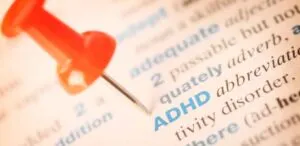Conversion Disorder is also known as functional neurological symptom disorder, a psychological health problem that appears as physical symptoms. Your brain “converts” the impacts of a mental health issue into disturbances of your brain or nervous system, which leads to the occurrence of different symptoms. The symptoms are true, yet they don’t match with any known brain diseases.
Think about, for instance, falling off a horse hard and then being unable to move your legs. Your arm, however, is unharmed. No other area of your body is either yet you are unable to move it. Your body responds to the psychological and emotional pressure of your fall by paralyzing one of your arms. Although it may seem unusual, your symptoms are real and you can’t control them.
Experts include this disorder in a wider category of medical conditions called functional neurological symptom disorders. It’s crucial to understand that conversion disorder is a genuine psychological health issue. It’s not merely something someone has imagined or in their thoughts. Even if it’s a mental health issue, the physical symptoms still exist. The symptoms of conversion disorder cannot be controlled by trying or thinking about it.

What are the Symptoms of Conversion Disorders?
Depending on the area of the brain affected, conversion disorder symptoms might vary greatly. Among the most typical signs are:
- Psychogenic non-epileptic seizures (PNES). Most often, structural or functional problems or disorders in your brain lead to seizures. Psychological Health Issues can trigger psychogenic non-epileptic seizures.
- Sense-related disruptions. With conversion disorder, there is a chance that the senses of sight, hearing, smell, taste, and touch will be affected. Examples include the inability to feel things touching your skin, hearing loss or numbness, double or tunnel vision, and hearing loss.
- Pain is a common symptom of conversion disorder, sometimes present alone or in combination with other symptoms.
- Paroxysmal dystonia. unusual tremors, twitches, spasms, and tension in the muscles. All of them occur as a result of a disturbance in the way your brain commands your muscles.
- Weakened or paralyzed muscle
- Difficulty swallowing (dysphagia)
- Dizziness
- Fainting or failing (syncope)
- Chronic fatigue or low-energy
What causes conversion disorder?
Though the exact cause of conversion disorder is still unknown, experts believe it results from your brain’s attempt to cope with emotional stress. It’s virtually always triggered by distressing circumstances and other psychological disorders. Women are more likely to have it than males. When a person has conversion disorder, common situations include:
- Abuse during childhood in the past
- Having additional psychological problems, including anxiety or depression
- A recent painful or stressful experience
- A recent health condition or event acting as a trigger for conversion disorder
- Having a history of emotional stress or who find it difficult to express their emotions
How is conversion disorder diagnosed?
This disorder cannot be identified by a test. Your physician will initially rule out any further physical, psychological, or neurological reasons for your symptoms. They might ask if you’ve had any stressful situations recently.
The following are required for a diagnosis of conversion disorder:
- You have no control over them, and they influence your senses or movement
- Your symptoms cannot be explained by any other factor, such as a different medical condition or mental health problem
- You have one or more symptoms that are connected to how your brain regulates your senses or movement.
- Your symptoms don’t match any known or recognized medical diseases
- Your life is disrupted by the symptoms or problems, particularly your work potential, relationships, etc.
- You are not making them
What tests will be performed to identify this condition?
The recommended tests are heavily influenced by the symptoms you are experiencing. In general, neurological tests and diagnostic imaging are most likely. These consist of:
- Blood tests
- Computerized tomography (CT) scan
- Electroencephalogram (EEG)
- Electromyogram
- Evoked potentials test
- Magnetic resonance imaging (MRI)

How is conversion disorder treated?
The first approach is often psychotherapy. It’s also typically the best strategy. The most typical forms of psychotherapy consist of:
Cognitive Behavioral Therapy (CBT)
The most frequently suggested form of therapy is this one.
Hypnotherapy.
When conversion disorder symptoms interfere with your ability to communicate or use any of your senses, this approach could be extremely beneficial.
Group or family therapy
People with this disease can connect with others going through comparable hardships through group therapy.
Other treatments that may help include:
Physical therapy.
Although the physical consequences of conversion disorder may not be immediately apparent, they still exist. People with conversion disorder may recover from or learn to cope with physical symptoms with the use of physical therapy.
Medication.
Medication for such disorders can assist with this disorder symptoms when they co-occur with other conditions like depression or anxiety.
Biofeedback.
An alternative medical strategy called biofeedback instructs patients on how to change the way their bodies work. Your physical and emotional health may be improved by this mind-body treatment.
Novus Beginning Psychiatry: Your Path to Health and Wellness Starts Here!
We understand that navigating the complexities of mental health can feel overwhelming, but you don’t have to face it alone. At Novus Beginning Psychiatry, we’re here to support you every step of the way. Whether you’re seeking therapy, medication, or a combination of both, our compassionate professionals are dedicated to helping you find the path to a happier, healthier life.
Our highly skilled psychiatrists are experienced in a wide range of mental health conditions, including anxiety, depression, bipolar disorder, OCD, PTSD, ADHD, autism, different types of trauma, and more. We offer evidence-based therapies that have been proven effective in helping individuals overcome their challenges. From cognitive-behavioral therapy (CBT) to couples/family therapy, we utilize the most up-to-date techniques to empower you on your healing journey.
We also recognize that medication is vital in managing certain psychological health conditions. Our team includes Dr. Nibras, who is a board-certified psychiatrist well-versed in medication management. He works closely with you to develop a comprehensive treatment plan, as we believe in the power of personalized care.
So, take the first step towards a brighter future. Contact us today to schedule an appointment. Our friendly staff is ready to assist you in finding a convenient time to meet with our dedicated professionals. Call (832)856-4718 and let us help you take charge of your mental well-being.
Medication Management For Psychiatric Wellness
At Novus Beginning Psychiatry, we’re dedicated to helping you unlock the power of effective medication management. Our team of psychiatrists has years of experience and understands the importance of finding the right balance for your mental health journey. We offer personalized and compassionate care, creating medication plans that are tailored to your unique needs. Our understanding of psychopharmacology allows us to provide the most advanced and evidence-based treatments available.
Our goal is to help you by providing the right medications to enhance your therapy outcomes, reduce your symptoms, and improve your overall well-being. We want to be your trusted partner on the path to a brighter future. Please don’t hesitate to contact us at Novus Beginning Psychiatry to experience the transformative effects of our comprehensive medication management approach.
Who is Dr. Nibras?
Dr. Sohail Nibras is a double board-certified psychiatrist in child, adolescent, and adult psychiatry. He completed his education at Saint Louis University and the American University of Integrative Science. He excels in treatments based on psychiatric care and therapeutic sessions and has experience treating dual psychiatric and substance use disorders. He is an assistant professor at the Menninger Department of Psychiatry and Behavioral Sciences at Baylor College of Medicine in Houston, Texas. He serves as an attending psychiatrist at Texas Children’s Hospital. He trains future psychiatrists and engages in scholarly research projects.
Visit us
Come and visit us at one of our locations in-person or meet us via telepsychiatry/online!
We’re here to help in Texas, ready to meet you in person. If you’re unable to make it in person, don’t worry, we’re also available online, so you can meet us easily from the comfort of your own home. Whether you prefer to see us face-to-face or connect with us online, we’re here to assist you every step of the way.
Address in Sugar Land
120 Eldridge Rd Suite D, Sugar Land, TX 77478
Address in Katy
23410 Grand Reserve Drive, Ste. 401 & 402 Katy, Texas 77494



